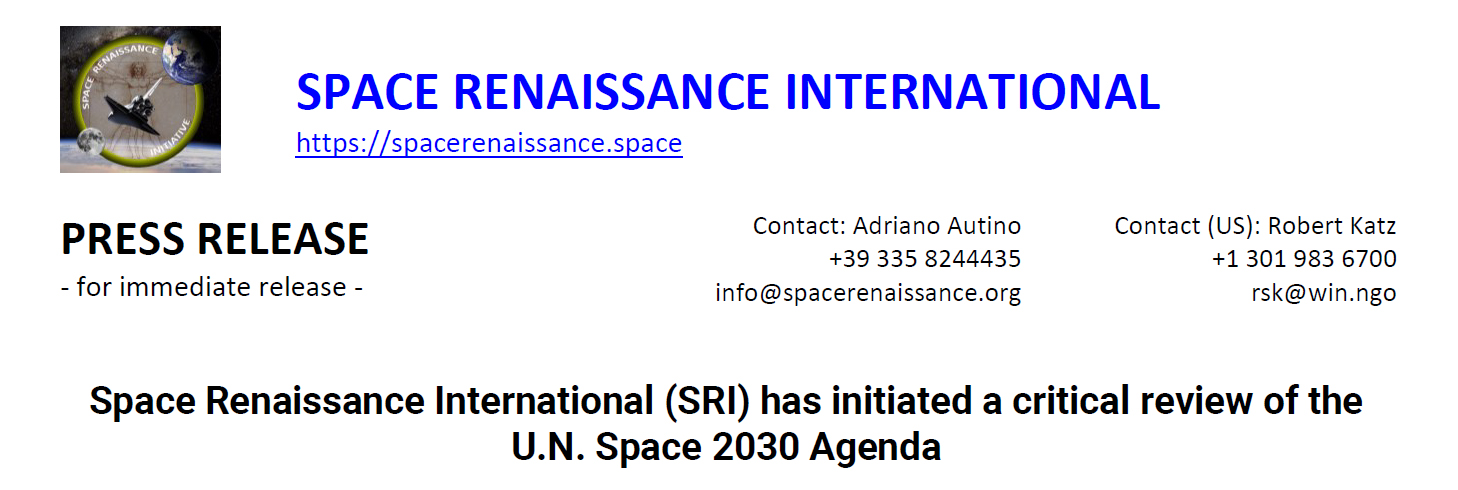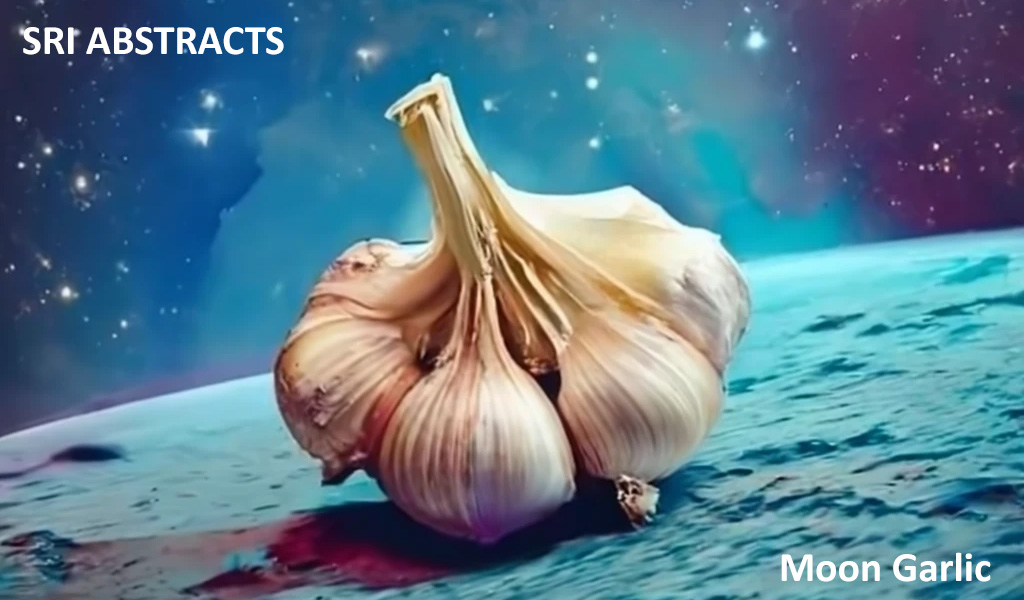
Planet Earth – August 7, 2024 – “2025 is a crucial year”, said Adriano V. Autino, CEO and co-founder. “In 2025 the U.N. 2030 Agenda for Sustainable Development, as well as the U.N. Space2030 Agenda[1] will be re-examined. This process will offer the Space Community an outstanding opportunity to enable a serious far-reaching discussion on global strategy for sustainable space settlement, identifying and investigating the key steps, following on from the development of reusable launch vehicles.”
SRI will participate in these discussions, helping to advance the Space18th SDG proposal and its underlying concepts, on their dedicated forums and social channels, and within the appropriate U.N. Committees, namely the Committee on the Peaceful Uses of Outer Space (COPUOS) and the U.N. Office for Outer Space Affairs (UNOOSA).We believe that the Space Community shall do its best to enable an extensive public awareness of these discussions, and the truly urgent need to help launch Civilian Space Development before 2030.
2030 remains a key date, for the SDG and the space development agenda, regardless of whatever proponents advocating for a programmatic rescheduling to 2035 – 2050 horizon (without any critical public reflection) might suggest.
SRI is therefore proposing that all space advocacy NGOs should undertake a critical public reflection and review of the Space 2030 Agenda.
In general terms, the current version of the agenda – issued in 2021 – appears to be a collection of worthwhile wishes, but it is missing the most important goal of space activities – space settlement and civilizational expansion into space – and it is therefore void of any plans for realization. Sustainability seems to be the main concern of the Agenda, yet outer space is only conceived of as a tool to support human sustainability on Earth’s surface.
There’s no mention of outer space as an arena of possible expansion and sustainable development for human civilization. Space exploration is the only concept mentioned for manned activities in outer space, and there’s no mention of space settlement and its value to mankind. These, then, are the biggest limitations of the U.N. Space 2030 Agenda.
SRI proposes several fundamental questions to begin working on a timely revision of the Space2030 Agenda:
- Which critical concepts are currently missing in the Agenda?
- Why does the Space2030 Agenda need a radical review?
- Space2030 Agenda: who knows about it?
- What key organizations have been engaged with the Space2030 Agenda, and to date what public initiatives have been undertaken?
- How has the Space2030 Agenda enhanced public awareness regarding space as a key factor for human sustainability?
- What are the public initiatives held so far?
- What amendments (if any) should we propose?
- What may be the main points for a policy of much greater public exposition?
SRI will undertake major public initiatives in 2025, focused on the Space 2030 Agenda, to help expand public awareness regarding space development as a key factor that can make human development fully sustainable.
About Space Renaissance International:
Space Renaissance International (SRI) is a global non-profit organization dedicated to promoting the peaceful civilian development and further exploration of outer space for the benefit of all humanity. SRI advocates for space philosophy and sustainable space development as key factors in addressing global challenges and securing a prosperous future on Earth and Beyond. SRI recently achieved Observer Status at U.N. COPUOS, championing Civilian Space Development for Humanity. For more information about Space Renaissance International and its initiatives, please visit https://spacerenaissance.space.
Join the SRI crew: https://spacerenaissance.space/membership/international-membership-registration/
About the Space 18th SDG:
The Space 18th SDG initiative, led by Space Renaissance International and the National Space Society, is spearheading and accelerating global efforts to establish a new Sustainable Development Goal focused on sustainable civilian space development and leveraging space technologies to accelerate the achievement of the existing 17 SDGs. This proposed goal recognizes the critical role of space in overcoming global challenges and ensuring a sustainable future for humanity both on Earth and beyond.
The Space 18th SDG Alliance: https://spacerenaissance.space/the-space18sdg-proposer-organizations/
Join the Alliance: https://spacerenaissance.space/sign-the-18th-sdg/
About U.N. COPUOS:
The United Nations Committee on the Peaceful Uses of Outer Space (COPUOS) was established by the General Assembly in 1959 to govern the exploration and use of space for the benefit of all humanity. It serves as the primary international forum for the development of laws and principles governing outer space activities, and for fostering international cooperation in space science and technology applications.
https://www.unoosa.org/oosa/en/ourwork/copuos/index.html
Also download a pdf version of this Media Release.








 Space Renaissance France (French Chapter of SRI)
Space Renaissance France (French Chapter of SRI)  Space Renaissance USA, Inc. (USA Chapter of SRI)
Space Renaissance USA, Inc. (USA Chapter of SRI) Space Renaissance (Italian Chapter of SRI)
Space Renaissance (Italian Chapter of SRI) Space Renaissance Academy
Space Renaissance Academy Space Renaissance Initiative Group
Space Renaissance Initiative Group